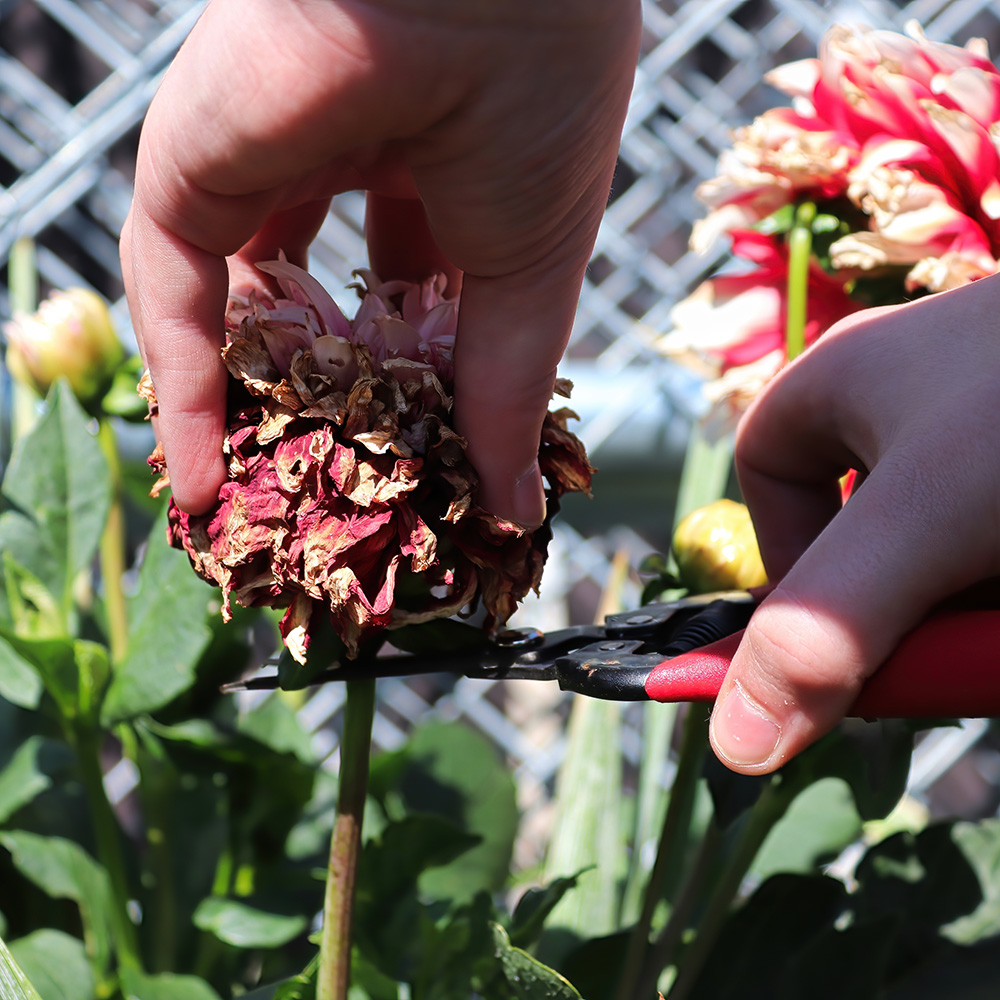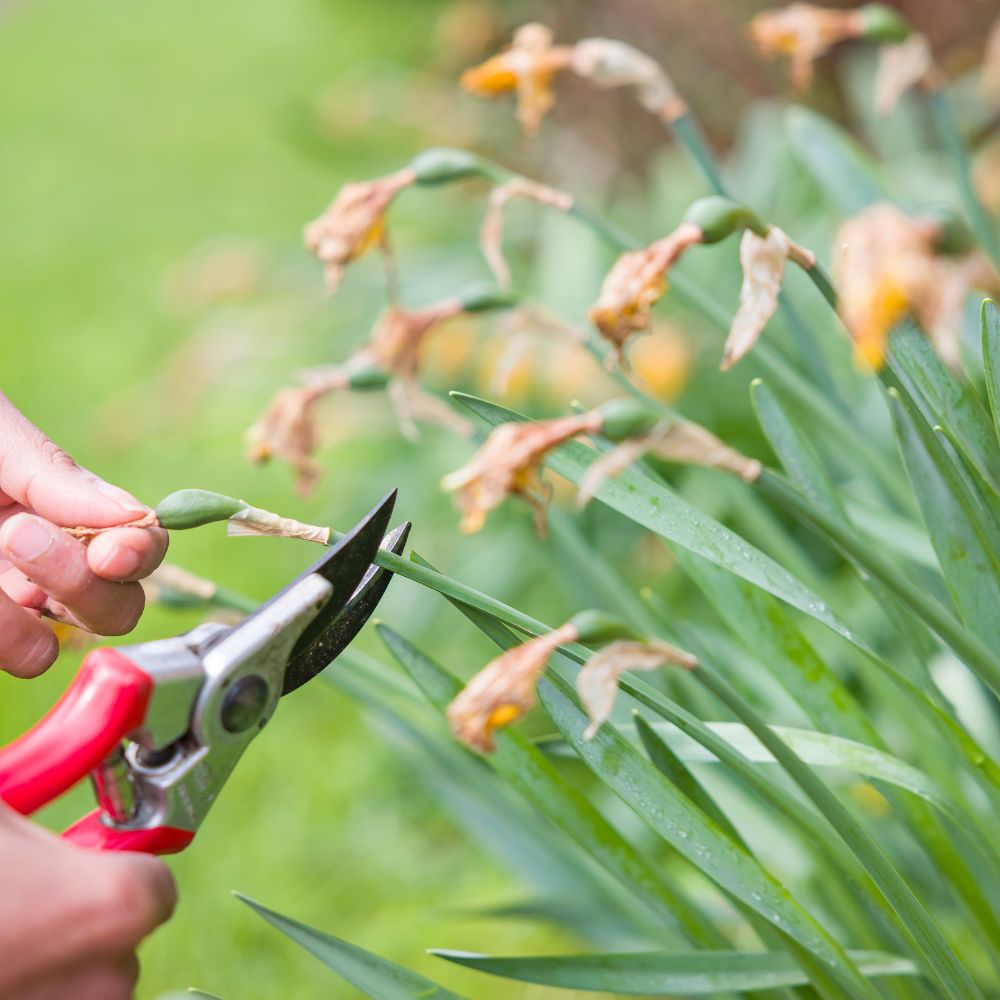Flower power all summer long: Our deadheading tips to keep your garden blooming
Summer in the UK is a glorious time for gardens, bursting with vibrant flowers. But to keep that floral display going strong all season, there's a little secret weapon every gardener should know about - deadheading. Deadheading is the process of removing spent blooms from plants to encourage new growth and prolong flowering periods. By deadheading regularly, you can redirect the plant's energy from seed production to the growth of new flowers, resulting in a beautiful display into autumn. We have put together our top tips on what to deadhead and how for you to enjoy more blooms for longer.
Roses
Deadhead roses as soon as the petals begin to wilt and lose colour. This prevents the rose from putting its energy into seed production and encourages it to focus on producing new blooms.
For large flowering clusters, you can remove the individual wilted blooms while leaving healthy buds intact. For single blooms or spent flower heads, cut the entire stem back to a strong set of five leaves.
Regular deadheading your rose in summer not only promotes more flowers but also improves air circulation around the plant, which can help prevent fungal diseases. It also keeps your rose bush looking neat throughout the season.

Some of the UKs Favourite Flowers
Geraniums: Loved for their vibrant coloured blooms, geraniums are a mainstay in summer gardens. As individual flowers reach their peak and begin to fade, the plant naturally redirects its energy towards seed production, essentially pausing flower creation. Deadheading your geraniums disrupts this cycle by removing spent blooms. This sends a clear message to the plant to encourage more flower production! By deadheading, you will extend the geranium's flowering period and ensure a captivating display throughout the summer months and into autumn.
Petunias: Petunias, a firm favourite for containers or cascading over hanging baskets, are a true summer delight. Regular deadheading is essential to ensure a continuous burst of colour throughout the season. Pinch or snip off the wilted blooms just below the flower head, using your fingers or sharp pruners. This encourages new growth and keeps your petunias overflowing with vibrant flowers all summer long.
Marigolds: Marigolds are easy-to-grow summer flowers that respond well to deadheading. By pinching off faded blooms, you can promote a more compact growth habit and stimulate the plant to produce more flowers, enhancing the overall visual appeal of your garden. As soon as a flower begins to fade or wilt, simply pinch it off where it meets the stem using your fingers or a pair of garden shears.

Dahlias
Dahlias are prized for their striking dinner head flower heads, pom pom blooms and daisy-shaped delights. By removing spent flowers, you can prevent the plant from channelling energy into seed production and instead focus on producing new blooms for a stunning summer display. Old, decaying flowers can also increase the chance of diseases and pests so removing them reduces the risk of these problems spreading to healthy parts of the plant. It will also allow light and air to reach the remaining blooms and foliage, so you have a late summer display to be proud of.

How to deadhead for summer success
Make clean cuts: Use sharp secateurs or pruners to remove the flower stem just above a healthy set of leaves. This will encourage new growth.
Deadhead regularly: Ideally, deadhead every few days for summer bedding and once a week for perennials.
Do it in the morning: Deadheading is best done in the cool of the morning when plants are well-hydrated.
If you need some new tools to get started, find a wide range of hand tools both Online and in your Local British Garden Centre.































